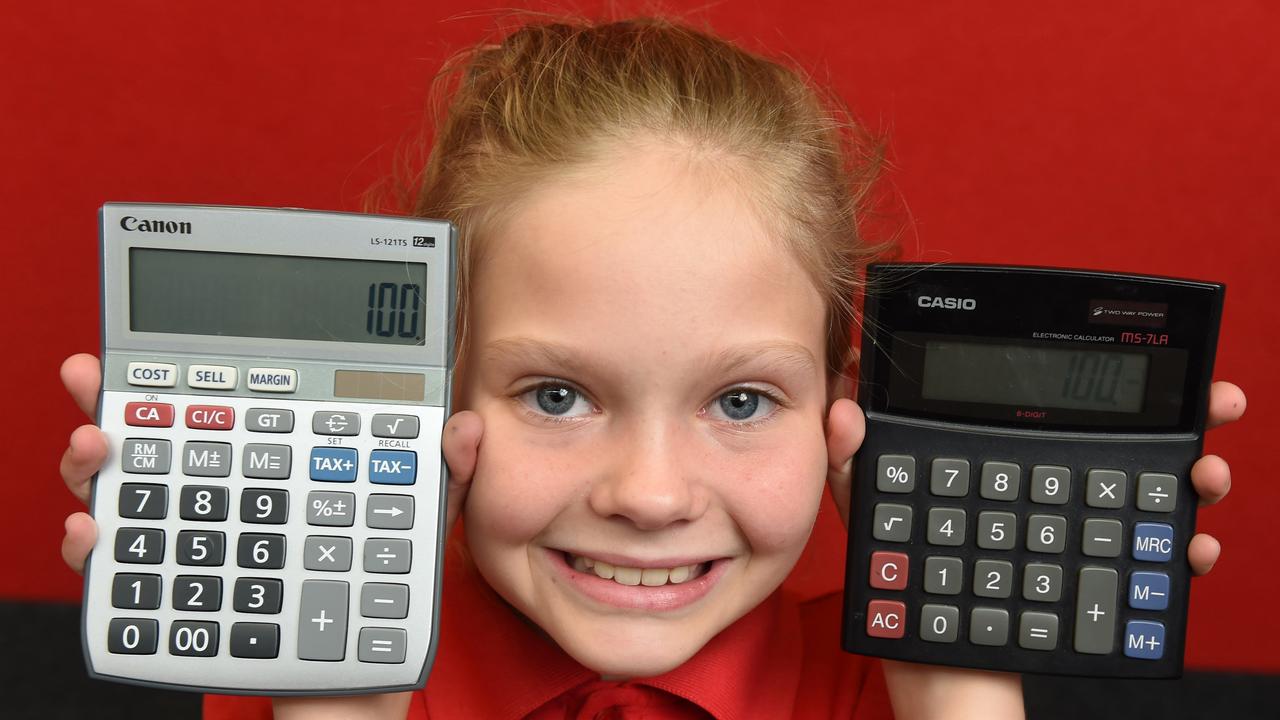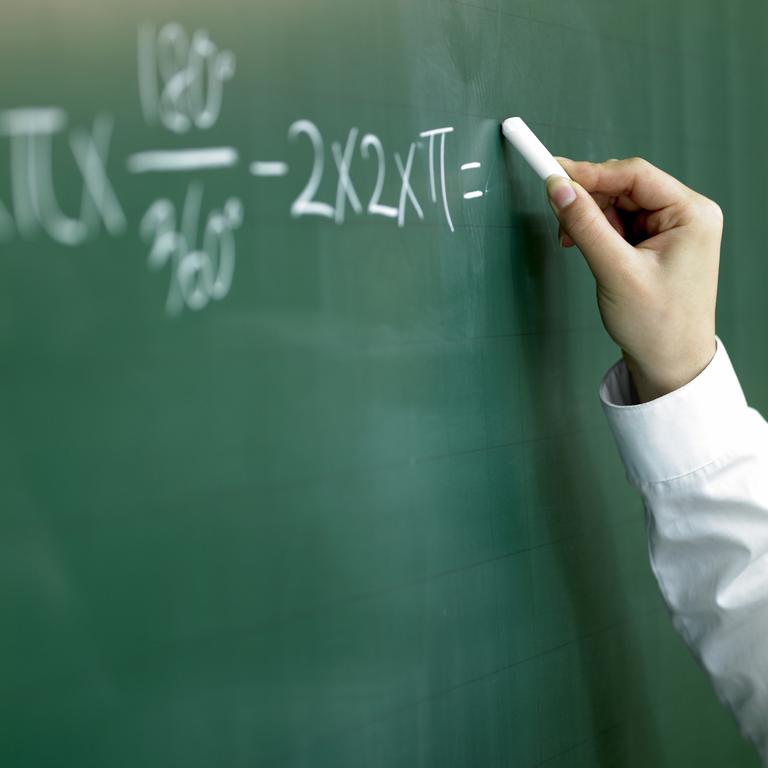Student skills for life drive maths’ comeback as compulsory HSC unit
Students in NSW are set to reach for their calculators right through school as maths returns to compulsory subject status for Year 12s from 2026 after 25 years as an optional unit of senior study

READING LEVEL: ORANGE
Maths will return as a compulsory* Year 12 subject in NSW, under changes to the state syllabus*.
The HSC class of 2026 will be the first in a quarter of a century to sit compulsory mathematics exams.
First flagged* in 2019, the NSW Education Standards Authority said new senior syllabuses would be introduced by 2025.

The 2026 date gives teachers time to come to terms with the new content and means NSW students currently in Year 8 will be the first cohort* made to do senior level maths since it became optional in 2001.
Currently, QLD students must study one maths subject in Years 11 and 12, while students in Victoria, NSW and the ACT can drop the subject in their senior years, although individual schools may set their own requirements.
NSW Education Minister Sarah Mitchell said the change would improve the career prospects* of high school graduates no matter what job they wanted.

“Maths helps develop skills for life, providing students with fundamental* skills in problem-solving, analysis and reasoning that are essential no matter what career they choose,” Ms Mitchell said.
“My vision is for every child in NSW to have the necessary maths skills to succeed in life.”
For students who aren’t excited by Pythagoras’s theorem*, the government previously announced a simpler maths course focusing on percentages and interest rates.

The move also has the backing of high profile YouTube star and Cherrybrook Technology High teacher Eddie Woo, who said it would help kids who didn’t like maths the most.
“The more unnatural it is to develop skill in a particular area, the more valuable it will be to you because it really broadens your ability,” he said.
Mr Woo was always interested in humanities* subjects at school, but became a maths teacher because there was simply a higher demand for jobs in that subject.
He told students that performing well in maths would boost their confidence.

“A lot of people’s self-concept* about their own intelligence is deeply tied to how they go in maths,” he said.
He personally finds teaching lower ability maths classes more rewarding. In one class recently a student told him she was going to “check out” because she would be leaving school to get an apprenticeship as a pastry chef.
“I said, ‘tell me more about that’. It took us 15 minutes to realise that actually to be a successful pastry chef, you’ve really got to know ratios and measurements and proportions and be able to run your own business,” he said.

Monash University education expert Professor Chandra Shah said some children were just not inclined towards maths.
“For example, if someone is very artistic and would prefer to concentrate on artistic things, there might not be that much time to do that if they have to do maths,” Professor Shah said.
“It may not work for everybody if you’re forced into that situation. The subjects students do at that level should be what they want to do and what they’re passionate about.”
Many countries, including New Zealand, Singapore, Taiwan and China, make maths study mandatory* through to the end of secondary school. At the moment, 80 per cent of Australian students study maths in their final year of school, although many at a basic level.
GLOSSARY
- compulsory: must be done, required by rule or law, obligatory, non-negotiable
- syllabus: plan detailing the subjects and materials to be studied in a particular course
- flagged: indicated, signalled that something important was coming
- cohort: group of people that share a characteristic that is often age, year level or rank
- prospects: outlook, chance or likelihood of future success and opportunities
- fundamental: basic, foundational, elementary
- Pythagoras’s theorem: in a right-angled triangle, the square of the hypotenuse side is equal to the sum of squares of the other two sides
- humanities: study of languages, literature, art, history and philosophy
- self-concept: how someone thinks about, evaluates or perceives who they are
- mandatory: required, see compulsory
EXTRA READING
Gaming and sport could restore maths mojo
Bush and beach beat traditional kinder classes
Kids quizzed by app to gain phone access
QUICK QUIZ
- When did senior level maths become optional in NSW?
- In what year will the first new compulsory HSC exams be held?
- A previously announced simpler maths course focuses on what two areas?
- What is NSW Education Minister Sarah Mitchell’s vision “for every child in NSW”?
- What proportion of Australian students currently study maths in their final year?
LISTEN TO THIS STORY
CLASSROOM ACTIVITIES
1. Create a diagram
Design a poster. The purpose of your poster is to make someone who hates maths change their mind about it.
Time: allow 30 minutes to complete this activity
Curriculum Links: English; Mathematics; Visual Communication Design
2. Extension
“No subjects should be compulsory – students should just choose what they want to study!”
Do you agree or disagree with this statement? Write paragraphs explaining your opinion. Make your writing as convincing as possible.
Time: allow 25 minutes to complete this activity
Curriculum Links: English
VCOP ACTIVITY
Read with Kung Fu punctuation
Pair up with the article between you and stand up to make it easy to demonstrate your Kung Fu punctuation.
Practise reading one sentence at a time. Now read it again, while acting out the punctuation as you read.
Read and act three sentences before swapping with your partner.
Take two turns each.
Now ask your partner to read a sentence out loud while you try and act out the punctuation. Can you keep up? Swap over?
Try acting out two sentences – are you laughing yet?


